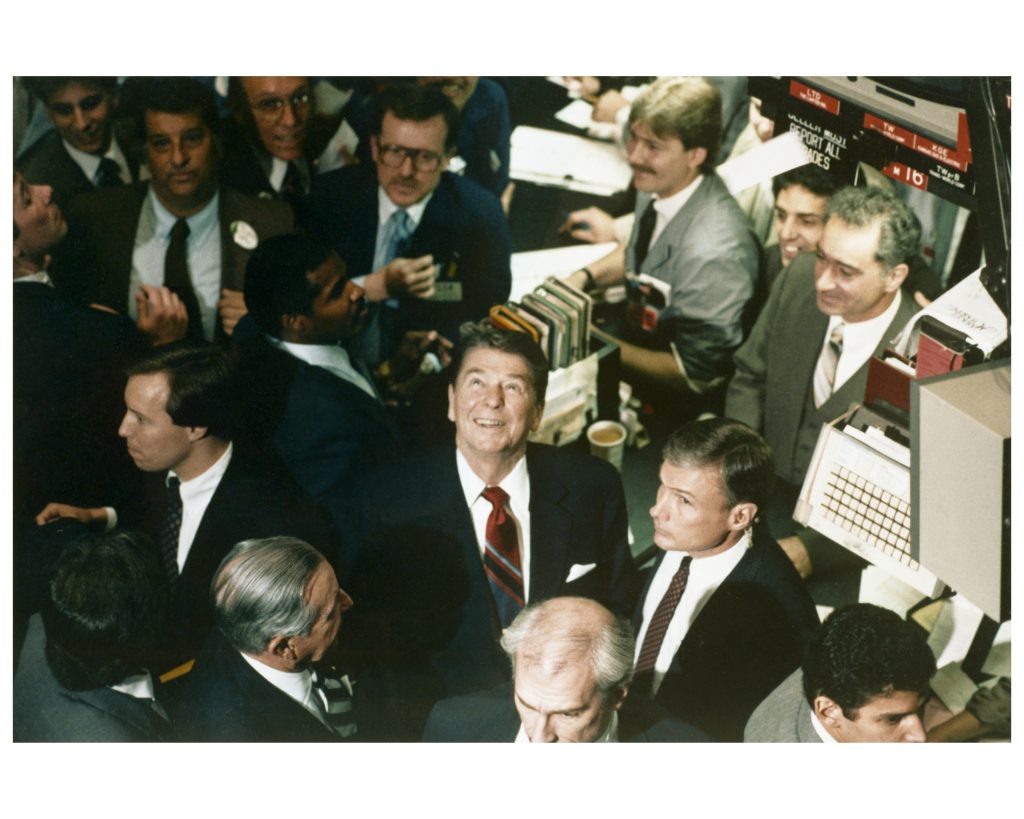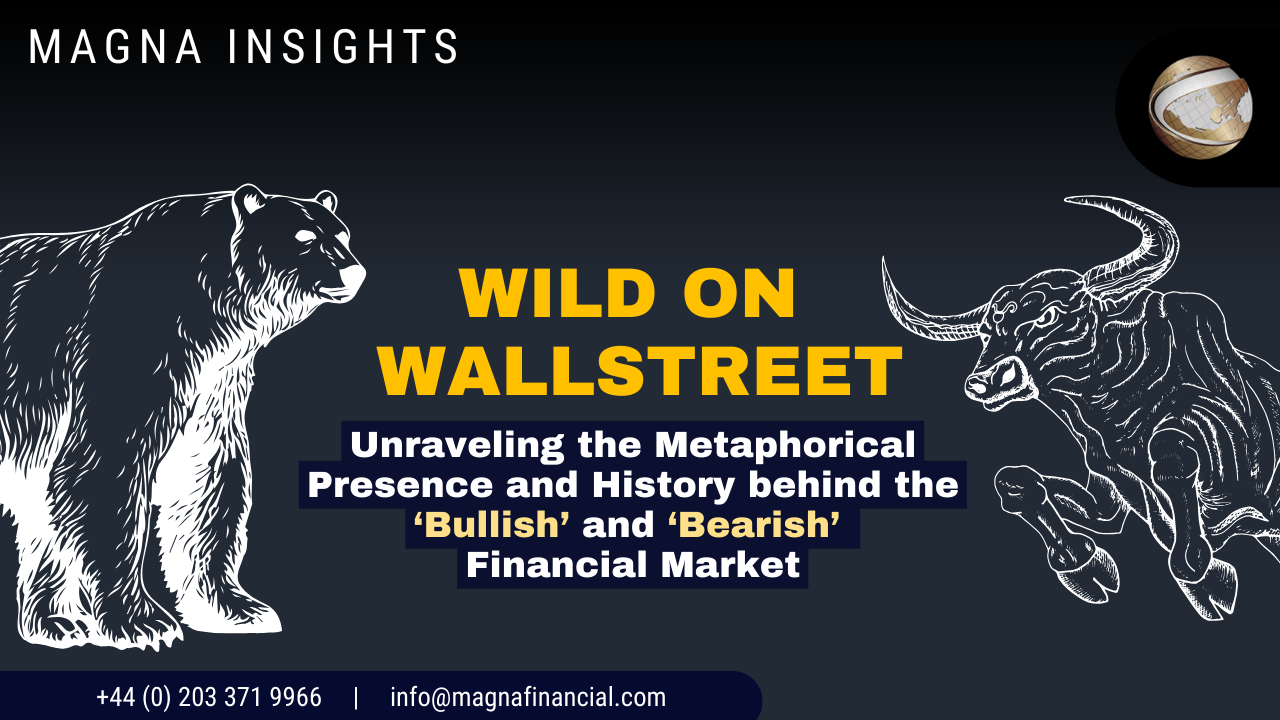In the vast landscape of financial markets, there exists a realm of terms that carry weight far beyond mere linguistics. Among these, “bull” and “bear” reign supreme, their significance echoing through the corridors of trading floors and investment firms alike. But have you ever wondered how these animalistic monikers came to symbolize market trends? The answer lies in the annals of history, that shape our understanding of the market’s ebb and flow.
One of the most enduring tales harkens back to the behaviors of the creatures themselves. Bulls, with their upward thrusting horns, embody rising markets, while bears, known for their downward swipes, symbolize market downturns. It’s a simple yet evocative metaphor, one that aids in capturing the essence of market movements.
The terms “bull” and “bear” wield significant influence. The origin of the term “bear” dates back to 1709, as documented in The Tatler, a British journal by Richard Steele. Steele is credited with introducing the phrase “selling a bear” in an essay, illustrating the valuation of intangible assets. Merriam-Webster suggests an earlier usage, possibly originating from “bearskin jobber” in the 18th century, later shortened to “bear.” It’s plausible that “bear” preceded other variants in financial market terminology.
Another narrative traces the use of these terms to the 16th century, where intermediaries in bearskin sales speculated on future prices, hoping for a drop to profit from the spread. These middlemen, known as “bears” or bearskin jobbers, likely contributed to the term’s evolution into describing market downturns.
What is the “bull” and “bear” market?
In the world of forex trading, understanding the dynamics of bull and bear markets is paramount. A “bear market” signifies a prolonged downturn in stock prices, typically dropping by over 20%, accompanied by pessimistic investor sentiments. Drawing parallels to the hibernation of a bear during winter, this market phase reflects sluggish economic activity, diminished trading volumes, and an overall sense of stagnation. It’s a period where caution reigns supreme, and investors brace themselves for prolonged downturns.
Conversely, a “bull market” denotes an extended period characterized by rising stock prices, typically increasing by at least 20%. The term finds its origins in the imagery of a bullish charge, with bulls thrusting their horns upwards in a powerful, upward motion. In such market conditions, investors exhibit confidence, eagerly seeking investment opportunities as risk tolerance heightens. Traders strategically invest during bull markets, anticipating peak market performance to capitalize on profits. Understanding these market cycles empowers traders to navigate the forex landscape adeptly, making informed decisions to maximize gains and mitigate risks.
Factors Influencing a Change in the Market Trends
- Key Fundamentals: Economic Indicators
Understanding essential economic indicators such as interest rates, inflation, employment figures, and PMIs is crucial for assessing the economic health of countries and influencing currency values.
- Capital Flow: A cornerstone in the interconnected global economy
Capital flow between countries have a profound effect on exchange rates and market dynamics, making it necessary for close monitoring to anticipate market shifts and capitalize on emerging opportunities.
- Risk Sentiment: A barometer for market trends
Risk sentiment reflects investor and trader attitudes toward risk, impacting market trends. Understanding risk sentiment is vital for making informed trading decisions and managing portfolio exposure effectively.
- Terms of Trade: A critical aspect of international trade economics
The terms of trade compare a country’s export costs to its imports, influencing currency valuations and market stability. Traders must monitor changes in terms of trade to anticipate market reactions and adjust trading strategies.

The Bull Market of 1987-2000: The Roaring 1990s
Few periods shine as brightly as the record-setting bull market of the 1990s. Spanning an impressive 12 years, this era stands as a testament to the resilience and dynamism of the U.S. economy. Fueled by the conclusion of the Cold War and the advent of the Internet Age, the economy experienced a meteoric rise, propelling the stock market to unprecedented heights.
During this remarkable period, the S&P 500 index delivered a staggering cumulative return of 582%, making it the longest-lasting bull market in the index’s history. Investors reaped substantial rewards as stock prices soared, reflecting the optimism and exuberance of the era.
However, amid the euphoria, challenges loomed on the horizon. The late 1990s witnessed the emergence of the Dot-Com Bubble, characterized by inflated valuations of technology stocks such as Amazon.com, Cisco Systems, and Pets.com. As investors chased soaring prices, valuations reached unsustainable levels, setting the stage for a subsequent downturn.
Despite the eventual transition into the Dot-Com Bubble, the legacy of the 1990s bull market endures as a testament to the power of innovation and economic transformation.
Magna Financial: Expert understanding of these markets
Forex trading services present a significant advantage by catering to traders in both bullish and bearish conditions.
At Magna Financial, we understand the intricacies of forex trading and how to navigate both bullish and bearish markets effectively. Our expertise lies in providing comprehensive currency brokerage services that empower you to capitalize on market fluctuations. Whether you’re seeking to take advantage of a strengthening currency or hedge against a weakening one, our team is here to assist you every step of the way. By closely monitoring bull and bear markets and analysing currency trends, we offer valuable insights to inform your trading decisions. With our guidance, you can strategically time currency transfers, effectively manage risks, and optimize your savings.
Partner with Magna Financial today and unlock the full potential of savings.
For all your currency requirements, we are here to provide expert assistance and personalized guidance. Whether you need assistance with currency exchange, international money transfers, or managing fluctuations in exchange rates, our team has you covered. Feel free to reach out to us directly for any currency-related inquiries or financial advice. Your seamless transition is our priority, and we are committed to making it a smooth and stress-free experience for you.
Contact us at: +44 (0) 203 371 9966 | info@magnafinancial.com





